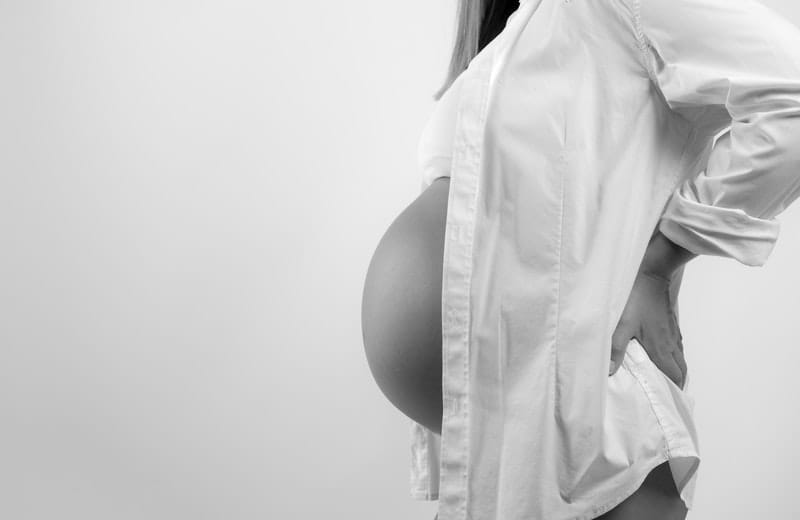An ectopic pregnancy, at times referred to as a tubular pregnancy, is a dreadful experience for any woman to go through. In most instances, someone who has an ectopic pregnancy is unaware that there is something wrong with her pregnancy. She may even start making plans before an abdominal pain, and an ultrasound later brings everything crashing to the ground. This phenomenon is quite common with a large number of miscarriages occurring as a result of undiagnosed ectopic pregnancies.
An ectopic pregnancy is a disorder where the egg, after being fertilized, is implanted somewhere else other than the uterus. This fertilized egg further develops until it causes pain to the woman due to its size. Typically, in this condition, the fertilized egg will attach itself to the cervix, fallopian tubes, or the abdomen. The does not receive nutrition while in this location thus cannot develop normally. Moreover, there is no technique that can shift the fertilized egg from these sites to the uterus.

1. Pelvic Pain
A pain with tenderness, usually in the pelvic region, starts on one side initially, though the pain can radiate through to the abdomen and is similar to that of having a stitch. On other occasions, women have experienced only mild niggling twitches. In some other cases, you may have pain that radiates from the pelvis and down the leg, You may also develop a stomach ache. The pain might worsen when you strain your bowels, or when moving or coughing. If a tubal rupture happens, you will feel a sharp, steady pain that will gradually diffuse throughout the pelvic region. You might think that it’s a miscarriage, but that is not always the case. Additionally, if you feel pain when you pass water or when your bowels open and you are pregnant, mention this in your next check-up.
2. Abdomen Pain
It is quite common, in pregnancy, for women to experience period like pains in their lower back and tummy. If you have the following, however, get yourself checked:
A one-sided pain in your abdomen which might be intermittent or persistent, which means that it comes and goes. The pain might have started suddenly or gradually.
A general feeling of fullness without eating.
Significant lower back and abdominal pain.
The cause for this one-sided pain is the growth of the egg where it shouldn’t and thus causing damage and bleeding. So if the egg lodges in one of the fallopian tubes, the pain will be felt on one side of the abdomen.
3. Bloating
Ectopic pregnancies certainly have some confusion as they tend to display some symptoms that are somewhat similar to gastroenteritis: vomiting, a tender stomach, and either diarrhea or constipation.
Bowel issues such as bloating that occur from an ectopic pregnancy is not because the egg has positioned itself in the bowel; that is entirely impossible. Instead, it is often a reaction to pressure, internal bleeding, or rupturing in the abdomen. If you have a suspicion it is an ectopic pregnancy, start noting your bowel and bladder responses from the moment the symptoms or pain began, then consult with your doctor.
4. Nausea and Vomiting
These signs occur in between 25 and 50 % of all ectopic pregnancies, and they may be hard to distinguish from the symptoms of morning sickness. These symptoms are often caused when a tube ruptures. They are followed by feelings of dizziness, weakness, and feeling like passing out when standing. These signs represent internal bleeding and may be accompanied by other symptoms such pale skin, increased pulse rate, diarrhea, and falling blood pressure.
5. Shoulder Tip Pain
This pain tends to develop concurrently with other symptoms such as nausea, abdominal pain, vaginal bleeding, and faintness.
Shoulder tip pain is triggered by internal bleeding which irritates the diaphragm when you breathe in and out. Note that shoulder pain is precisely at the tip and not the back or the neck. Most shoulder pains happen when we are stressed because one tends to hold themselves rigidly thus causing spasms in your back and neck muscles. Shoulder tip pain, however, is very distinctive and you should visit your GP if you feel it.
6. Abnormal Vaginal Bleeding
Discharge varies radically between ectopic pregnancies; it’s dependent on the placement of the egg and what it has done to the area surrounding it. You could expect anything from no discharge to a heavy flow. However, the most commonly stated symptom is a brownish discharge that looks like it contains old blood which is not a period. It is a sign of a rupture or internal bleeding.
The vast array of ectopic implantation locations results in differing symptoms. Though there may be other reasons for this bleeding, in pregnancy it should not be ignored.
7. Cramps
Fallopian tube ruptures are not pleasant. These tubes do not have a lot of elasticity, and thus a lodged egg that does not dissolve is more than likely to split them, which is a dire medical emergency that can only be resolved by immediate surgery. Before the rupture, the patient will feel severe cramps as an indication of something wrong. Once the split occurs, the accompanying pain and blood loss which is so critical that is more than likely going to make you pass out.
Thus, irregular and severe cramps during pregnancy need to be monitored and reported. Luckily, if you are diagnosed early enough, the egg’s growth can be halted by a dose of methotrexate, a type of drug that interferes with cell growth.